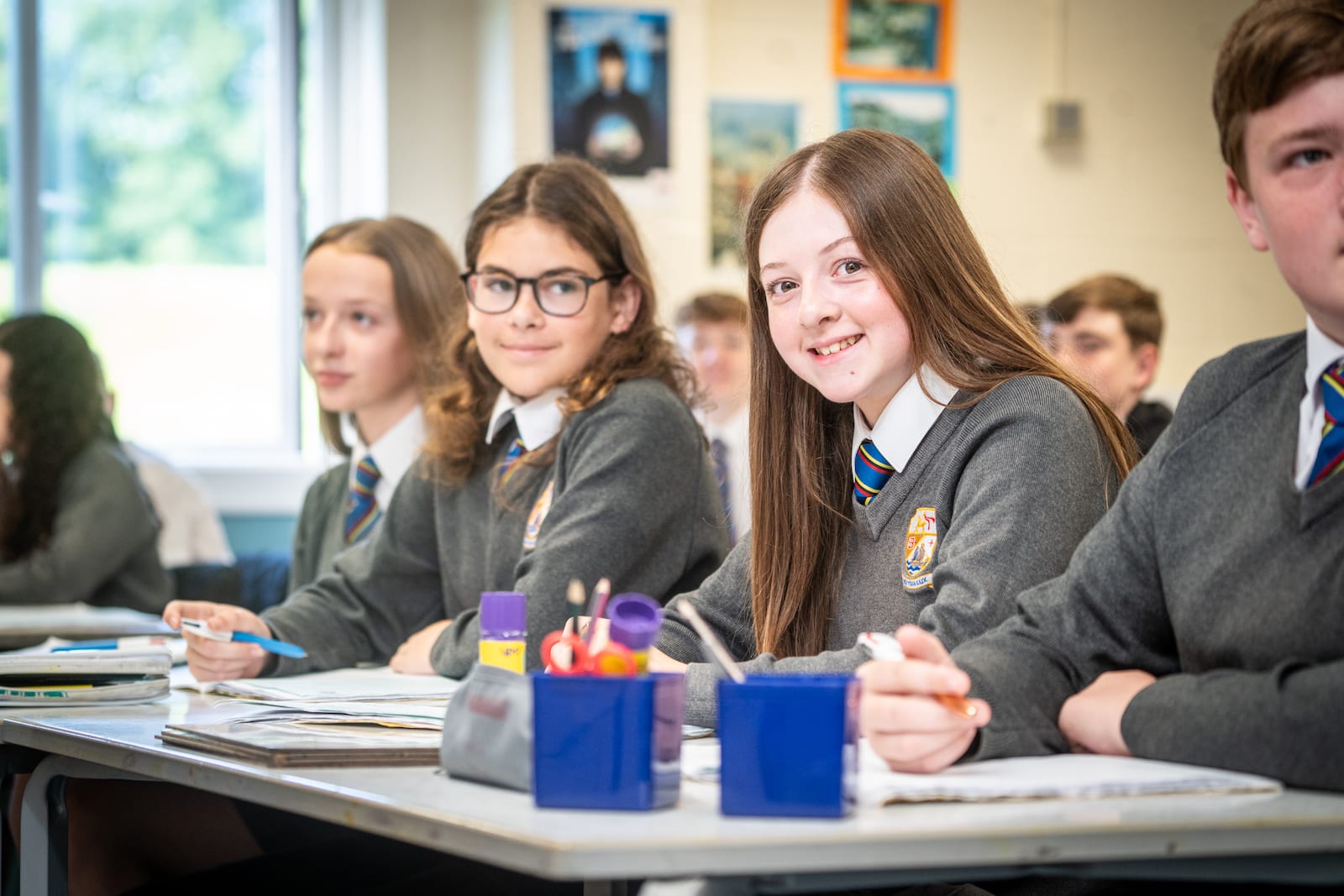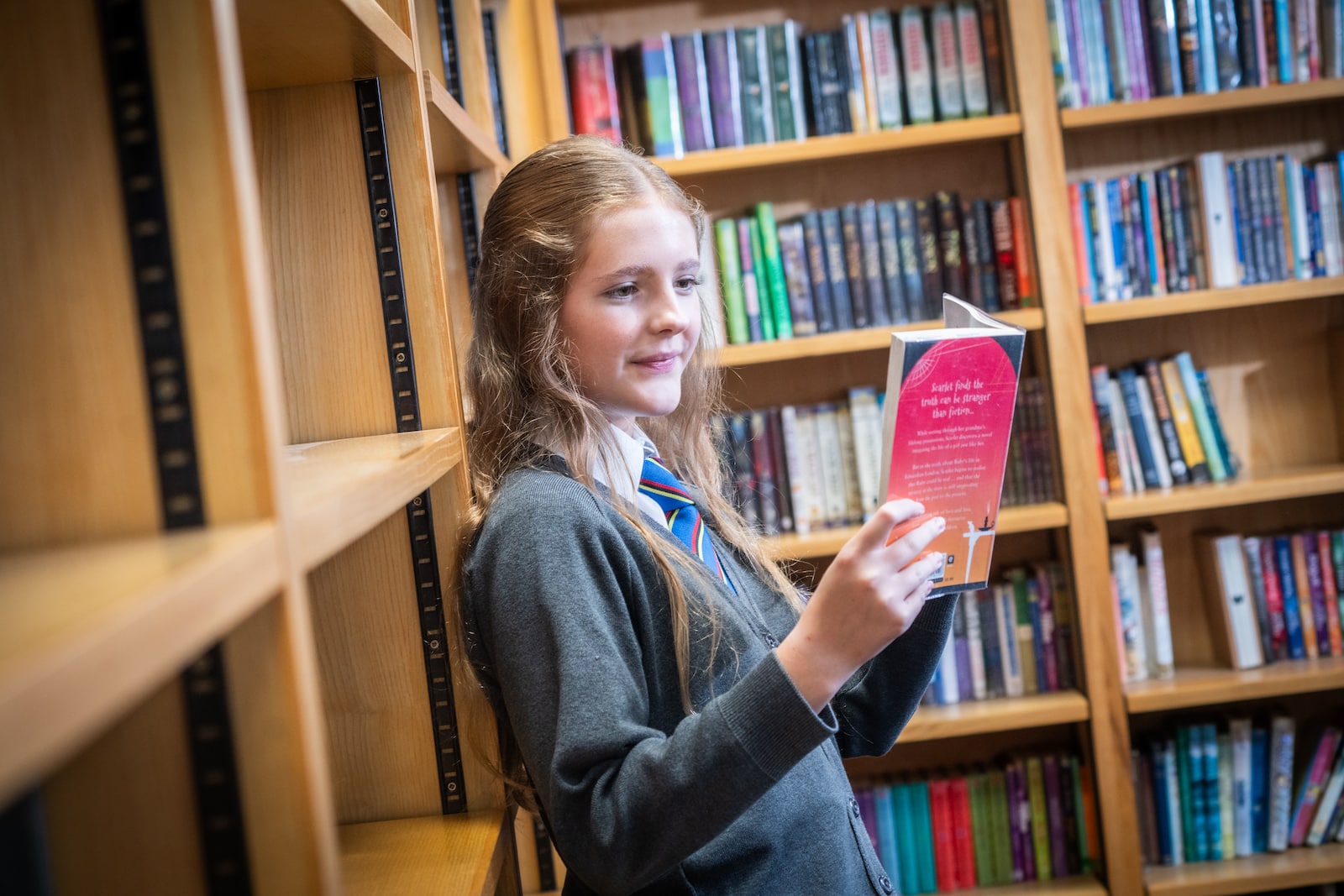Here at St Bede’s, our English teachers work with our young people to ensure they become literate, thoughtful members of the wider community with sound foundations not only for academic success but for life beyond school.
We feel it is our duty and privilege to help nurture a love of books, a love of reading and a passion for discussion and analysis. We think this is fundamental in developing engaged, perceptive and well-balanced students.
We have developed a wide and rich Key Stage 3 curriculum that is rooted in the requirements of the National Curriculum, and that offers pupils the opportunity to read diverse texts and develop their ability to write with technical accuracy for a range of audiences and purposes. We strive ambitiously to develop pupils’ reading, writing and oracy skills, giving them a solid foundation for later in life.
Our ‘Origins and Foundations of English’ curriculum in Year 7 builds on the knowledge and skills pupils have learned in Key Stage 2. Pupils will learn about the history of the English language and explore narrative texts from Patrick Ness to Charles Dickens, as well as persuasive texts from Greta Thunberg to Marcus Rashford.
Our ‘Authorial Voice and Other Worlds’ curriculum in Year 8 further develops pupils’ critical, analytical and evaluative skills and builds on knowledge and skills learned in Year 7. From Bill Bryson to Shakespeare (The Tempest) and Angie Thomas to Harper Lee, pupils will deepen their literary horizons, further develop their writing and speaking skills and study fiction and non-fiction from a diverse range of writers.
Our Year 9 curriculum ‘How Writers Influence and Innovate’ further builds on the knowledge and skills pupils have learned in their first two years at St. Bede’s. Hard hitting and age relevant topics such as growing up, war and conflict poetry and gothic and dystopian fiction are covered in year 9. Pupils will also study their second full Shakespeare play – Macbeth.
We are a proud reading school and the habit is embedded with regular reading lessons and visits to our library.
Pupils build on prior learning which provides the platform for achieving their potential at GCSE. We follow the Eduqas syllabuses for both English Language and English Literature.
Each pupil will sit two exams in English language and two in English literature. Please refer to the Learning Programme documents for additional details. Our set texts for GCSE English literature are:
- The Eduqas Poetry Anthology
- Romeo and Juliet – William Shakespeare
- An Inspector Calls – J.B. Priestley
- A Christmas Carol – Charles Dickens
Catholic Social Teaching deals with many aspects of the human condition, including how people treat other people. English is uniquely placed in the curriculum in its suitability, as a subject, to examine and explore issues of morality, injustice, prejudice and discrimination. Catholic Social Teaching is given a voice in the English curriculum through reading, writing and discussion of texts such as: Priestley’s An Inspector Calls, a morality play about oppression and the fundamental human rights of workers; Charles Dickens’ A Christmas Carol with its central message of social responsibility, care for our fellow humans and the rejection of material gain at the expense of everything else; and poems such as Living Space by Imtiaz Dharker, which celebrates the miracle of human life and the tenacity and resilience of people.
In English, pupils will learn to celebrate diversity. They will learn about the dignity of the human person. They will explore a wide range of cultures, and they will read, write and speak about many issues at the heart of Catholic Social Teaching.
We actively celebrate literature in our English department, and staff lead on wonderful local and national initiatives such as The Lancashire Book of The Year programme and The Big Book Quiz. Other enrichment opportunities include public speaking competitions, poetry competitions, Book Club, Sign Language Club and – new this year – Bede Talks, a speaking club linked with our Laudato Si sustainable development agenda.


